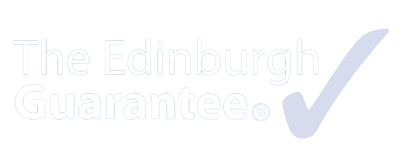Job searching and interview advice
There are many things to consider when you are looking to find a job or start a new career. If you need help with this, have a look at our I need help to move into work page.
To get you started, here are some Top Tips to consider:
ADVICE FOR JOB SEARCHING
- Spend some time thinking about the jobs you think you would like. Have a look at our I need help choosing a career page to get some ideas.
- Make a list of all the places that you can look: careers fairs, online jobs boards, recruitment websites, company websites, LinkedIn, newspapers, noticeboards, asking friends etc. It will help you keep track.
- Set up job alerts on online jobs boards to get notified of relevant opportunities.
- You might find it useful to start a log of all the jobs you apply for with the closing dates to help you keep track.
- Keeping a copy of the answers you use to apply for jobs will be good to help you prepare for any interviews.
ADVICE FOR YOUR CV
- A CV shouldn’t be more than two sides of A4 paper. An employer may have many CVs to read and won’t spend a long time on each one. It should be clear and concise.
- It should include the following sections: name and contact details, personal statement, work experience, qualifications, additional information (hobbies, interests, extra-curricular activities).
- Make sure your contact details are at the top and are correct.
- Make sure you have a professional looking email address – ideally, this would be your name i.e. joe.bloggs@gmail.com.
- The personal statement should be personal to you and make an impact. It should outline in a few sentences why you are the right person for the job.
- The personal statement should be specific to each post you apply for. Make sure it highlights how your skills would match the job. For example, if the job is in retail, make sure the statement sells your skills in customer service.
- List your jobs, starting with the most recent or current job. This should include the dates, the employer, the job title and 4 or 5 bullet points to describe your key responsibilities.
- The qualifications should include school, university, college, apprenticeships and any other relevant qualifications.
- Make sure to check your CV for spelling and grammar and use a clear font.
ADVICE FOR INTERVIEWS
- Find out information about the organisation or company by looking on their website.
- Make a list of the skills and qualities which the employer requires for the job. These will be detailed on the vacancy advert or job description.
- List your experience and skills which match the job. Use your CV and job application to help you.
- Prepare answers to questions that you might be asked. The job description and job advert will help you work out what they are looking for. This will help you think about what questions they may ask.
- Write down some questions you might want to ask them. It could be about the job role if you think something wasn’t very clear or it could be a question about the company itself. It always looks good to have a question ready in case they ask as it shows you are keen.
- Plan what you are going to wear. Aim for smart, clean and appropriate. Too much jewellery can be distracting. You want to feel comfortable but confident that you are giving a good impression.
- Check where the interview is to be held and how to get there. Allow sufficient travel time. It is always good to be a little early so you have time to take a deep breath and focus.
- Listen carefully to the questions. It is easy to be so nervous that you don’t hear what’s being asked. Take a breath and listen as this will give you a chance to think of your best example to fit that question. If you don’t understand what they are asking, apologise and ask them to clarify what they are asking.
- To help you make sure you answer questions in the fullest way possible, it is useful to follow the STARR model:
- Situation – What, Where When?
- Task – What were you asked to do or what was your responsibility?
- Action – What did you do?
- Result – What was the outcome?
- Reflection – What did you learn from it or what would you do differently next time?
ADVICE FOR STARTING WORK
- Always be on time or a little early. A good first impression is key to feeling confident in starting a new job.
- Dress appropriately for the job.
- Try to remember people’s names but if you struggle, that’s ok. You can tell them that you’re taking in so much new information that you have forgotten – everybody has been there!
- If you struggle to remember all the information you are being given, take notes to look back on. It will make you seem prepared and gives you a bit of reassurance that you don’t have to remember it all.
- Relax – nobody expects you to walk in and know exactly what to do on day one!
